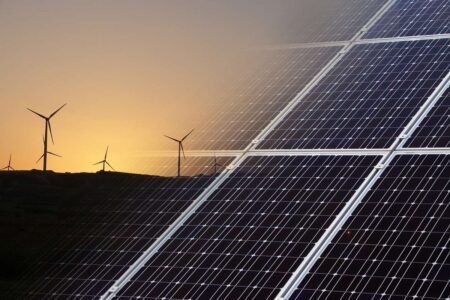The European Commission has taken the first step towards developing a 2030 framework for EU climate change and energy policies. It has adopted a Green Paper which launches a public consultation on the content of the 2030 framework. The Commission also published a Consultative Communication on the future of carbon capture and storage (CCS) in Europe, aimed at initiating a debate on the options available to ensure its timely development. Finally, the Commission adopted a report assessing Member States’ progress towards their 2020 renewable energy targets and reports on the sustainability of biofuels and bioliquids consumed in the EU.
Advertisement
What are the key objectives of this framework?
The key objectives are to reducing greenhouse gas emission, securing energy supply and supporting growth, competitiveness and jobs through a high technology, cost efficient approach.
What are the changes since the 2020 goals have been set?
Among the most important changes, there have been changes in the economy, new developments in technology leading to production of new types of energy, developments in terms of prices and developments in research.
Why is early agreement on a 2030 framework for climate and energy policies important?
- First, long investment cycles mean that infrastructure funded in the near term will still be in place in 2030 and beyond. Investors therefore need certainty about objectives and what policies will be in effect.
- Second, clarifying the objectives for 2030 will support progress towards a competitive economy and a secure energy system by creating more demand for efficient and low carbon technologies and spurring research, development and innovation, which can create new opportunities for jobs and growth.
- Third, an international agreement on climate change is expected by the end of 2015. In advance of this date the EU will have to agree on a series of issues, including its own ambition level for 2030, in order to engage actively with other countries.
What are the EU’s climate and energy targets for 2020?
The current policy framework is based on three headline targets to be achieved within the EU by 2020:
- a 20% reduction in greenhouse gas (GHG) emissions below the 1990 level
- a 20% share for renewable energy sources in the energy used
- a 20% saving in primary energy consumption (compared to projections before the agreement on the climate and energy targets for 2020).
What has already been achieved in terms of these targets?
In 2011 EU GHG emissions were estimated at 16% below 1990 levels while GDP has grown by 48% since 1990.
In 2010 renewables’ share of energy consumption was 12.7% compared to 8.5% in 2005.
Primary energy consumption peaked in 2005/2006 at around 1825 million tons of oil equivalent (Mtoe). It has been slightly decreasing since then to reach 1730 Mtoe in 2011.
What are the key issues for this consultation?
The Green Paper consults stakeholders on a number of issues of importance for the 2030 framework, including:
- What lessons can be learnt from experience with the existing framework?
- What climate and energy targets could be set for 2030?
- How can coherence between different policy instruments be ensured?
- How can policies best be defined to contribute to EU competitiveness and security of energy supplies?
- How can Member States’ different capacities to act be taken into account?
What are the key findings for 2030 of the Energy Roadmap 2050 and 2050 Low-carbon Roadmap?
The scenarios presented by Energy Roadmap 2050 and 2050 low-carbon Roadmap suggested that
the EU’s GHG emissions would need to be reduced by 40% below 1990 levels to be on track to reach a GHG cut of 80-95% by 2050, consistent with the necessary reductions by industrialised nations as a group to reach the internationally agreed target to limit global warming to 2°C.
Higher shares of renewable energy, energy efficiency improvements and better and smarter energy infrastructure are ‘no regrets’ options for transforming the EU’s energy system.
Energy prices are projected to increase in the period up to 2030 with or without significant decarbonisation of the energy system. This is in large part due to investments in the energy system that would be necessary in any case.
Green Paper and consultation page
Source: European Commission






